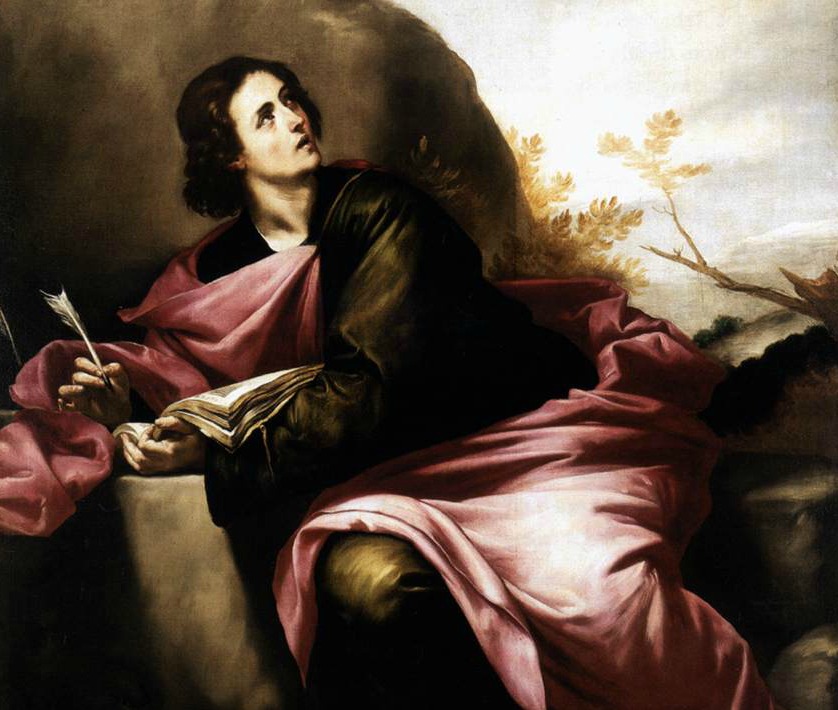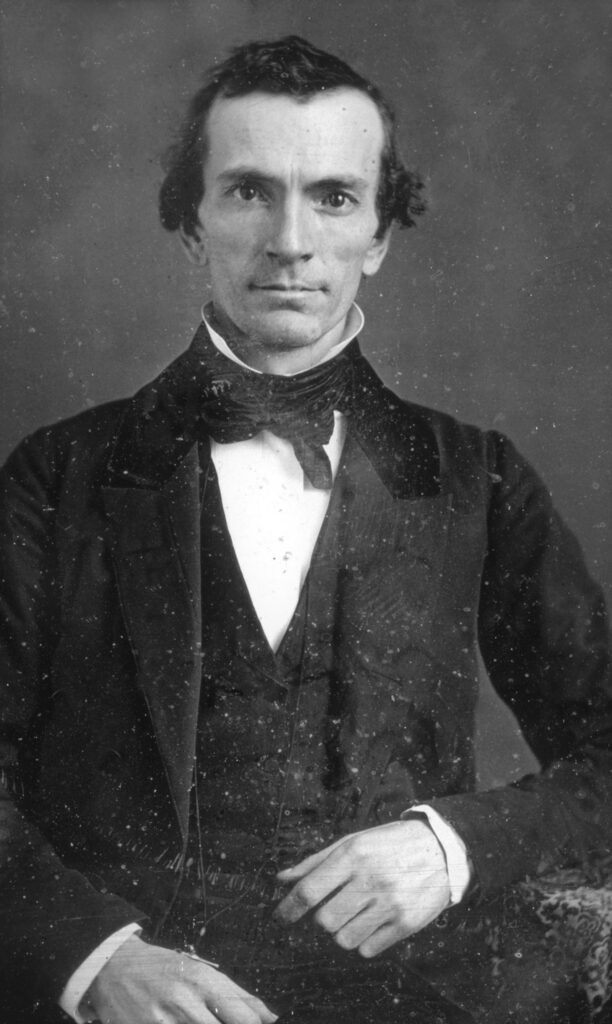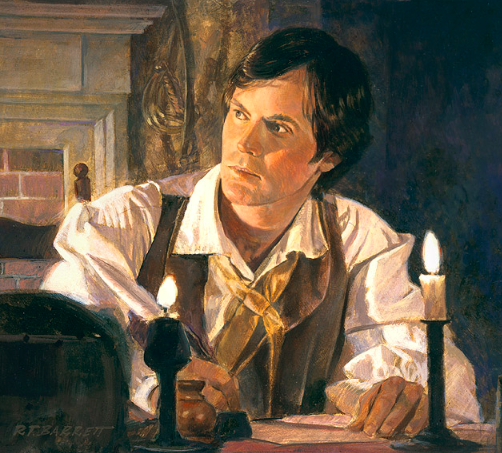To accompany your Come Follow Me study for the week of February 3-9
In addition to reading these four sections this week, you will also want to read or watch the following:
- Saints, 1:58-64
- “Voices of the Restoration” in this week’s Come Follow Me material in the Gospel Library.
- Oliver Cowdery’s Gift (churchofjesuschrist.org)
- Chapter 5: Doctrine and Covenants 6; 8–9 (churchofjesuschrist.org)
- Chapter 6: Doctrine and Covenants 7; 13; 18 (churchofjesuschrist.org)
- Joseph Smith’s Revelations, Doctrine and Covenants 6 (churchofjesuschrist.org)
- Joseph Smith’s Revelations, Doctrine and Covenants 7 (churchofjesuschrist.org)
- Joseph Smith’s Revelations, Doctrine and Covenants 8 (churchofjesuschrist.org)
- Joseph Smith’s Revelations, Doctrine and Covenants 9 (churchofjesuschrist.org)
If you would like a Kahoot game dealing with this material that you can use with your family or class, you may find it at: https://create.kahoot.it/share/doctrine-and-covenants-6-9/8b02d568-1b17-4c0e-8604-15d571ce89d7. To use it with a group, after clicking on this link, you will need to log into Kahoot, creating a free account if you have not done so previously, then click on the blue “Host Live” button or the gray “Assign” button, depending on how you wish to use the Kahoot. Some of the Kahoot questions may presuppose that the player has read through the suggested answers to the following Points to Ponder and at least has browsed the Institute student manual as well.
As sections 6, 8, and 9 all deal with somewhat the same issues, let’s look at section 7 first and then consider the other three sections as a group.
Points to Ponder in Doctrine and Covenants 6-9
D&C 7
1. According to the best available evidence, which of the following seems most likely concerning the parchment on which John recorded the original version of D&C 7?
a. It was shown to Joseph Smith by John at the time of the restoration of the Melchizedek Priesthood.
b. It was for a time in Joseph Smith’s possession but was lost by his family following his death.
c. It is on display in the Church museum in Salt Lake City.
d. It disintegrated centuries ago.

2. What do you consider the most important addition of D&C 7 to what we already knew from the Bible concerning John’s future?
3. Other than to serve as a piece of scriptural trivia, what is the main principle contained in D&C 7 that you think the Lord would want us to focus on today?
D&C 6, 8, and 9
4. What were the major factors which impelled Oliver Cowdery to visit Joseph Smith for the first time at the time that he did?

5. In what way did section 6 provide Oliver Cowdery with additional evidence of Joseph Smith’s prophetic claims?
6. Why are Joseph and Oliver instructed (6;9) to “say nothing but repentance unto this generation”? Shouldn’t faith and baptism have received equal time? Wouldn’t sacrament meetings be boring if every talk dealt with the same subject?
7. Does 6:16 mean that the devil can’t read your mind? Explain.
8. Is there a contradiction between 6:2 and 6:21? Who is actually speaking? Or are the Father and the Son trading off, like two good missionary companions in giving a lesson?
9. Which passage could serve as consolation to a small seminary or institute class whose members were concerned about the smallness of their numbers?
10. What do we learn in sections 6, 8, and 9 about
a. How to get revelation?
b. How to recognize revelation?
11. Is revelation primarily an intellectual or emotional experience, or is it neither, or both? Explain.
12. How does the description of Moses’ revelations in section 8 differ from the typical Hollywood version?
13. What two mistakes did Oliver Cowdery evidently make in his efforts to translate part of the Book of Mormon?

14. Why don’t we have any additional translations of ancient records coming through Oliver Cowdery, despite the promise of 9:2?
15. Some opinions concerning the translation of the Book of Mormon have been expressed to the effect that Joseph Smith just looked into the Urim and Thummim and saw the English equivalent of the Reformed Egyptian text before his eyes, which he then only had to read to his scribe and which remained before his eyes until the scribe had copied it down correctly, at which time the next sentence or phrase would appear. What would lead us to believe that this explanation is at least partially in error?
16. Is the formula of 9:7-9 for getting and recognizing revelation a universal principle applicable by anyone, or was the promise limited to the translator(s) of the Book of Mormon? Why might some who seek answers not feel either the burning in the bosom or the stupor of thought?
17. How could principles from 9:7-9 be applied to
a. a student deciding on a major in college?
b. a young adult trying to decide whom to marry?
c. someone trying to get a personal testimony of the gospel?
18. Does 9:14 mean that if we are steadfast, we won’t go bald? If not, what does it mean?
19. What other passages from this week’s reading did you think were particularly memorable?
Possible answers to Points to Ponder in D&C 6-9
D&C 7
1. According to the best available evidence, which of the following seems most likely concerning the parchment on which John recorded the original version of D&C 7?
a. It was shown to Joseph Smith by John at the time of the restoration of the Melchizedek Priesthood.
b. It was for a time in Joseph Smith’s possession but was lost by his family following his death.
c. It is on display in the Church museum in Salt Lake City.
d. It likely disintegrated centuries ago. Joseph Smith never claimed to have had the parchment. It was evidently a revelation of something that John had written long ago, and the parchment probably didn’t exist any longer even in Joseph Smith’s day.
2. What do you consider the most important addition of D&C 7 to what we already knew from the Bible concerning John’s future?
Your choice. Two possibilities would be:
- D&C 7 makes it clear that John requested the opportunity to stay on his earthly mission,
- D&C 7 makes it clearer than the Bible does that John was promised that he would live until the Savior came again.]
3. Other than to serve as a piece of scriptural trivia, what is the main principle contained in D&C 7 that you think the Lord would want us to focus on today?
Perhaps the most applicable principle would be that of wanting to serve as long as possible in a calling rather than wanting to be released as soon as we’ve “served our time.”
D&C 6, 8, and 9
4. What were the major factors which impelled Oliver Cowdery to visit Joseph Smith for the first time at the time that he did?
Joseph desperately needed a scribe and prayed to the Lord to send him one. Oliver at the same time was deeply impressed that he should have the privilege of serving as Joseph’s scribe and had made it a matter of prayer. And with school coming to a close, Oliver was now free to go.
5. In what way did section 6 provide Oliver Cowdery with additional evidence of Joseph Smith’s prophetic claims?
It detailed private spiritual experiences that Oliver had had and which he had related to no one. (6:14-15, 22-23.)
6. Why are Joseph and Oliver instructed (6:9) to “say nothing but repentance unto this generation”? Shouldn’t faith and baptism have received equal time? Wouldn’t sacrament meetings be boring if every talk dealt with the same subject?
The teaching of “repentance” implies the teaching of faith and baptism, as all are related. Everything we teach should have some application to improvement in our behavior–i.e., repentance–or it is just religious trivia.
7. Does 6:16 mean that the devil can’t read your mind? Explain.
We’re not sure. Some have taken this passage to mean that. It is possible that the devil cannot read our minds directly, but surely he can read our “body language” and infer what we are thinking. For example, if we are reading a trashy novel, he will have a pretty good idea of what is going through our minds, just as he’d have a fair idea of our thoughts if we were on our knees in prayer. I think 6:16 may simply be saying that no mortal could read our minds, so that the fact that Joseph Smith seemed to do so was evidence of a supernatural power behind his work.
8. Is there a contradiction between 6:2 and 6:21? Who is actually speaking? Or are the Father and the Son trading off, like two good missionary companions in giving a lesson?
Both evidently refer to Jesus. Jesus Christ is our God–the one who spoke to Moses on Sinai and the one who created this earth. The fact that he also has a Father, whom we also address in prayer, does not lessen Christ’s godhood.
9. Which passage could serve as consolation to a small seminary or institute class whose members were concerned about the smallness of their numbers?
How about 6:32?
10. What do we learn in sections 6, 8, and 9 about
a. How to get revelation?
- Inquire (6:14); ask in faith (8:1); don’t fear (9:11) don’t trifle with sacred things (8:10)
- Good desires (6:27)
- Honest heart (8:1)
- Believe you shall receive (8:1)
- Study the matter out in your mind and propose a tentative conclusion for the Lord’s confirmation (9:8)
b. How to recognize revelation?
- Enlightenment of mind (6:15)
- Peace (6:23)
- Ideas in mind and feelings in heart (8:2)
- Burning of bosom; feeling that it is right—or wrong (9:8-9)
11. Is revelation primarily an intellectual or emotional experience, or is it neither, or both? Explain.
It has aspects of both–“heart” and “mind”–but is more than both. One could conceivably feel great emotion and even have a lucid mind concerning something, without there being any spiritual manifestation present. However, when the Spirit is present, there will be both a conceptual and a feeling dimension to the experience.
12. How does the description of Moses’ revelations in section 8 differ from the typical Hollywood version?
Hollywood usually has a thunderous noise. In reality, as 8:2-3 makes clear, it was a still, small voice, speaking to the spirit, not the ears.
13. What two mistakes did Oliver Cowdery evidently make in his efforts to translate part of the Book of Mormon?
Evidently he (1) didn’t understand that he had to do some studying and pose a tentative translation for the Lord’s confirmation, and (2) he was fearful (9:11.)
14. Why don’t we have any additional translations of ancient records coming through Oliver Cowdery, despite the promise of 9:2?
Perhaps Oliver didn’t remain faithful for long enough.
15. Some opinions concerning the translation of the Book of Mormon have been expressed to the effect that Joseph Smith just looked into the Urim and Thummim and saw the English equivalent of the Reformed Egyptian text before his eyes, which he then only had to read to his scribe and which remained before his eyes until the scribe had copied it down correctly, at which time the next sentence or phrase would appear. What would lead us to believe that this explanation is at least partially in error?
It seems at variance with the instructions of 9:7-9 and would make the Lord responsible for the grammatical errors in the 1st edition.
16. Is the formula of 9:7-9 for getting and recognizing revelation a universal principle applicable by anyone, or was the promise limited to the translator(s) of the Book of Mormon? Why might some who seek answers not feel either the burning in the bosom or the stupor of thought?
Some have suggested that this may have been intended as a unique promise to the translator of the Book of Mormon and that the promise of either a “burning in the bosom” or a “stupor of thought” may not be universally applicable. But there do seem to be general principles of revelation set forth here which all of us could use.
Perhaps rather than focusing strictly on the “burning the bosom” to recognize divine revelation, we need to broaden the descriptors so that we look for such things as peace, love, joy, ecstasy, certainty, etc., all of which are also characteristics of divine inspiration. The “burning” or feeling of warmth is not a bad description of what some say they have experienced– E.g., Luke 24:32. But it could be confusing to those who think it implies a more intense experience than it usually is or even a feeling of physical warmth. The Spirit speaks with a still, small voice. It doesn’t shout and usually isn’t accompanied by any physical effect that would be observable to another person.
We might observe that as important as receiving revelation is learning to recognize it. Some may well have received spiritual impressions that they attributed to their own ideas or emotions. Others may have had only personal thoughts and emotions and attributed them to God. It takes time and experience to learn to recognize the Lord’s Spirit, just as it does to learn to recognize the voice of a new friend on the phone. But with experience, both can become unmistakable.
17. How could principles from 9:7-9 be applied to
a. a student deciding on a major in college?
b. a young adult trying to decide whom to marry?
c. someone trying to get a personal testimony of the gospel?
In each case, one should study the subject at hand, come up with a tentative decision, and ask the Lord for confirmation rather than expect the Lord to do all the work!
18. Does 9:14 mean that if we are steadfast, we won’t go bald? If not, what does it mean?
This seems symbolic for the Lord’s promise to watch over us even in minute details. Certainly, it has no relevance for baldness in this life, though it is worth noting that hair lost in this life will be restored in the next!
19. What other passages from this week’s reading did you think were particularly memorable?
Your choice. Some of mine are 6:3, 6:7, 6:8, 6:13, 6:34, 6:36
